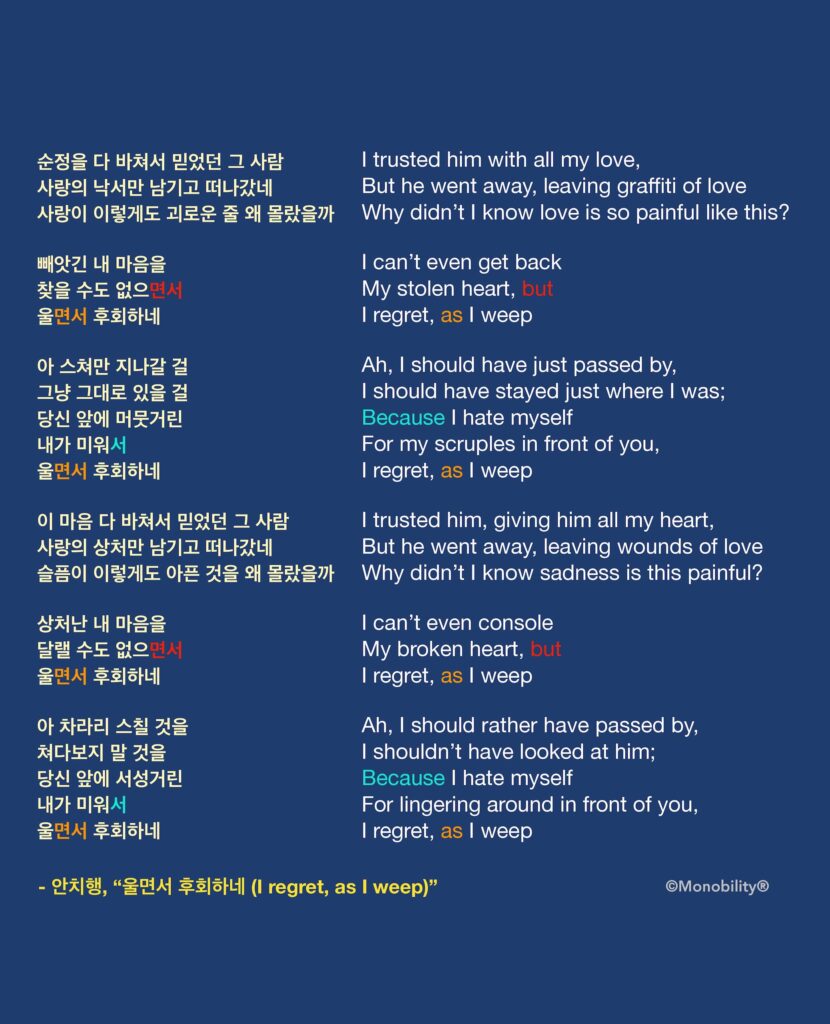Korean is an agglutinative language. It is of paramount importance to pay attention to ENDINGS of verbs and adjectives in Korean, since they work like glue between clauses and sentences. One little change of syllables in the endings can make all the difference in the meaning of the entire sentence.
A. Use of ending -서:
- When you end a verb with -서, followed by another verb, it means two consecutive actions. It can be translated as “(do something) and then, (do another.)”
집에 가서 자야지 = I’ll go home and sleep.
와서 같이 먹어요 = Come, and let’s eat together.
- By ending a verb or an adjective with -서, you can also tell the specific reason for the main clause that follows it. It is translated with a conjunction “because” or “since”, or “as”:
한국이 좋아서 여기 왔어요 = I came here because I like Korea.
꽃이 예뻐서 기분이 좋아요 = I feel good because the flowers are beautiful.
당신을 사랑해서 같이 있는 거예요 = I stay with you because I love you.




B. With -면서, the meaning of a clause becomes quite different from -서:
- Followed by another verb or an adjective, -면서 can mean that two actions are happening simultaneously. In English, it can be translated with a conjunction “as”, or with a present participle in a participle phrase.
울면서 후회해요 = I regret, as I weep. (Shedding tears, I regret.)
난 노래하면서 공부한다 = I study, as I sing songs. (Singing songs, I study.)
- When -면서 is not followed immediately by another verb, but is used for a longer clause with a context opposite to the main clause, it means “while…” “whereas…”, or “… but,”
너는 아무것도 안 하면서 왜 나한테 다 시켜? = Why do you tell me to do everything, while you are not doing anything?
그 사람 한국에 살면서 한국말을 하나도 못해요 = He lives in Korea, but he can’t speak Korean at all.


Follow us on Facebook for much more:


